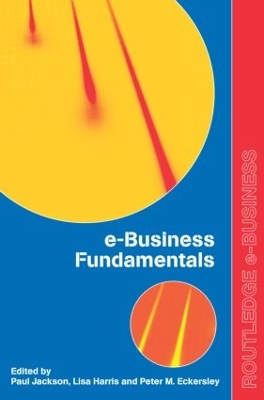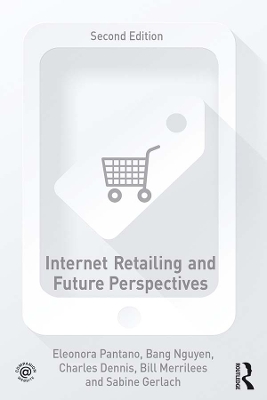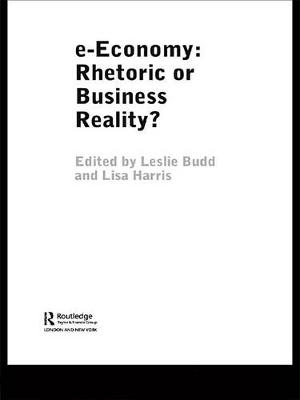Routledge eBusiness
4 total works
e-Business Fundamentals
by Paul J. Jackson, Peter Eckersley, and Lisa Harris
This comprehensive textbook considers all of the key business, management and technical issues of e-Business, examining and explaining how technologies can help organizations in both the public and private sectors conduct business in new ways.
After addressing the changing nature of the e-Economy and the impact of the dot.com 'bubble' of the late 1990s, Eckersley, Harris and Jackson go on to analyse key software developments and the impact these have had on organizational practices. They then outline the legal and ethical frameworks of e-Business, and consider how companies use various e-commerce tools to enter new markets. Finally, they trace the progress public sector organizations have made in adopting e-Business practice.
This is an accessible, jargon-free and focused textbook that offers readers both a technical and managerial overview of the issues surrounding e-Business. It uses illustrative cases and discussion questions to help students and managers in organizations not only to familiarize themselves with e-Business but also to equip themselves with the skills to challenge and analyze the changing business environment.
Since the much-hyped dot.com crash, treading the e-business path can be daunting. In these increasingly uncertain and cynical times, this useful text unpicks the challenges of e-Marketing for many types of business. It uses topical case studies and accompanying web material to provide an up-to-date study of effective marketing strategies. Topics include:
*Multi-channel marketing strategies
*Change Management
*Lessons learned from the dot.com crash
*Branding, e-Retail and relationship building
*Digital divides, privacy and data security.
Providing a new approach to the subject matter, this book analyses the benefits of e-Marketing as a tool for improving efficiency and effectiveness rather than business revolution. Considering the practicalities of marketing in an e-Business context, it is the first book of its kind to voice such a rigorous argument for the importance of e-Marketing, and a crucial text for anyone studying or practicing e-Business.
Internet Retailing and Future Perspectives
by Eleonora Pantano, Bang Nguyen, Charles Dennis, and Sabine Gerlach
Since the first edition of this landmark textbook, online shopping has grown exponentially to the point that it now threatens to eclipse the high street. With online retail offering both advantages and challenges that are distinct from traditional commerce, this textbook provides new approaches to retailing and as such helps readers to take advantage of new digital technologies.
This long-awaited new edition provides a thorough and substantial update to its solid core principle of digital retailing and its relationship with conventional retail methods. These principles are explained clearly and practically to provide students, entrepreneurs and researchers with a reliable guide to the implementation and operation of a successful online retailing business.
Updates to this edition include:
- Search engine marketing and search engine optimization.
- New and updated case studies, including Tesco’s virtual store, Ray-Ban’s smart mirror, IKEA’s mobile catalogue and Nordstrom’s TextStyle.
- Social networks and electronic word-of-mouth communication.
- A new chapter on ubiquitous retailing.
With accessibly written features such as key learning points, questions, think points and further reading, Internet Retailing and Future Perspectives is ideal for anyone using, studying or researching digital commerce.



